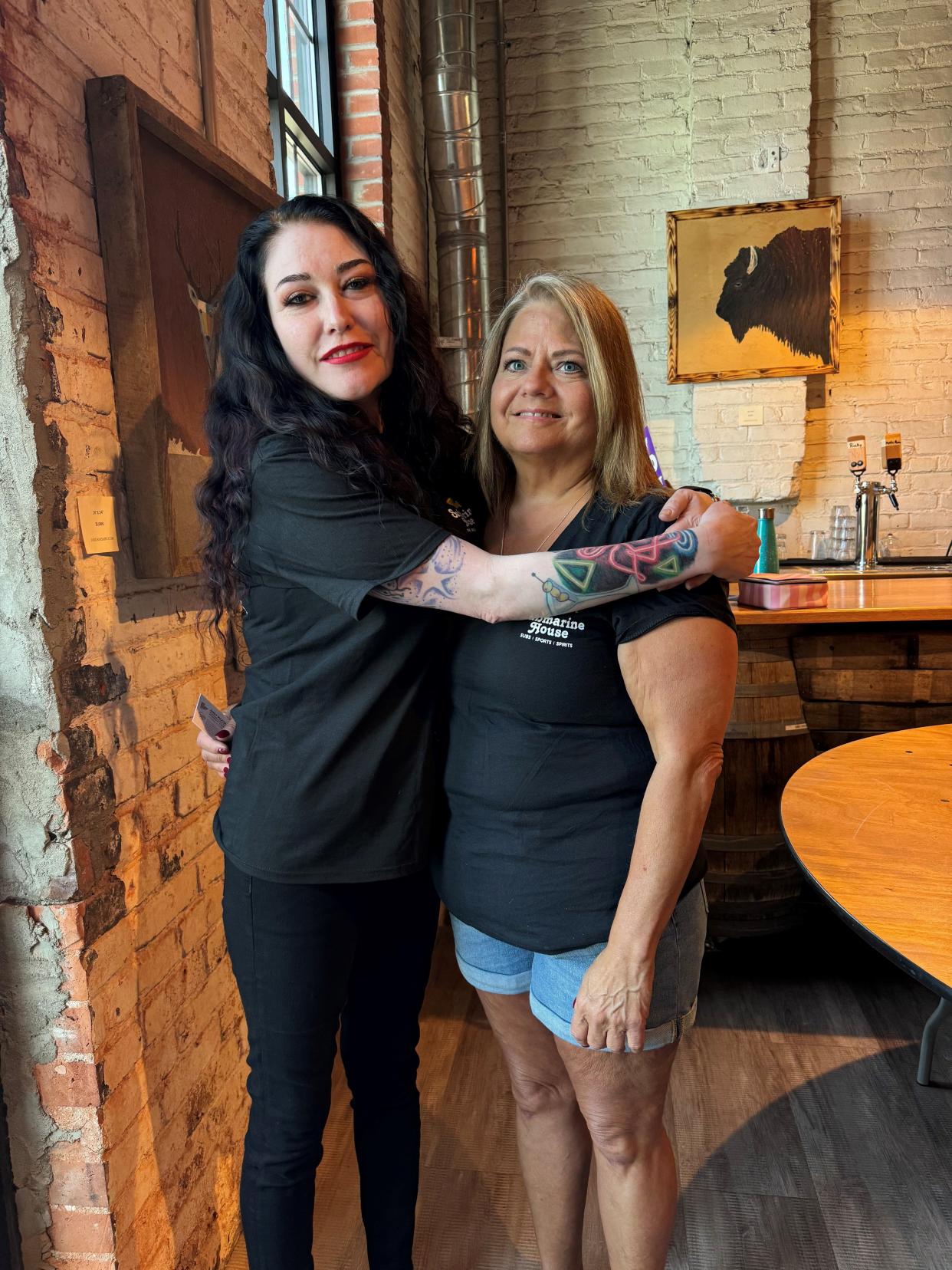Ohio bars and restaurants push back against $15 minimum wage proposal

In the battle over Ohio's minimum wage, a statewide restaurant trade group says servers and bartenders like the status quo and oppose a ballot issue that would raise the wage.
"We do not want our tips being messed with, our wages being changed," said Lindsay O'Dell, a bartender at Submarine House near Dayton. "I make over − easily − $30 an hour."
Alex Colon, who worked his way through the restaurant ranks to be a server at The Refectory in Columbus, said he clears $40 to $60 an hour and he worries that a change in the tipping law would end up lowering his pay. "There are just too many variables that could impact my pay. I don't think it's worth the risk."
Raise the Wage Ohio is collecting signatures to put a constitutional amendment on the statewide ballot in November. It would gradually raise the state minimum wage to $15 an hour and eliminate the current tiered system in which tipped workers are paid a lower hourly wage but are allowed to keep their tips.
It is part of a national campaign run by One Fair Wage that is seeking to boost pay in 15 states. The national campaign is trying to pass ballot issues in Ohio, Michigan, Massachusetts and Arizona this year.
The Ohio Restaurant & Hospitality Alliance conducted an online survey of nearly 1,000 tipped workers and found that 93% want to keep the current tipped system, 83% report that they make more than $20 an hour and 85% think customers won't continue tipping at the same level if they also have to pay a service charge on their bills.
One Fair Wage said workers who currently are paid a sub-minimum wage, plus tips, would make $15 an hour, plus tips. But Colon and O'Dell, who attended a press conference held by the Ohio Restaurant & Hospitality Alliance, said they believe that customers would just tip less if they know the minimum wage is higher.
One Fair Wage said tipped workers are leading the campaign to put the issue before voters.
"Today one of our worker members who makes $5.25 plus tips and is canvassing for the initiative to collect signatures told me she made $60 after working 9 hours yesterday. That’s less than $7 an hour. Real workers know that ending the sub minimum wage and securing $15 plus tips is what is needed to create a more sustainable financial future for themselves and their families,” said Mariah Ross, spokesperson for the campaign.
What would the ballot issue do?
The proposed constitutional amendment would bump the wage up to $12.75 an hour on Jan. 1, 2025 and then to $15 an hour on Jan. 1, 2026. After that, annual increases would be tied to inflation.
Tipped workers would earn the full minimum wage starting Jan. 1, 2029, plus whatever they make in tips.
In the interim years of 2025 through 2028, employers would have to gradually increase the minimum wage paid to tipped workers or demonstrate that the workers are making at least the non-tipped minimum wage set that year.
The constitutional amendment would also repeal sections that allow employers to pay sub-minimum wages for workers with disabilities and allows them to pay the lower federal minimum wage to workers under age 16.
What's next?
One Fair Wage has been in the field collecting signatures for a year. Once it turns in petitions, boards of elections workers will verify the signatures.
If the campaign collects at least 413,000 by the July deadline, the issue will go on the ballot. Both sides will then mount campaigns to convince voters which way to vote.
The Ohio Restaurant & Hospitality Alliance said it would mount a robust, grassroots campaign to fight against the issue.
Ohio is home to 23,000 bars and restaurants that employ 520,000 workers.
Laura Bischoff is a reporter for the USA TODAY Network Ohio Bureau, which serves the Columbus Dispatch, Cincinnati Enquirer, Akron Beacon Journal and 18 other affiliated news organizations across Ohio.
This article originally appeared on The Columbus Dispatch: Ohio bars and restaurants push back against $15 an hour minimum wage

